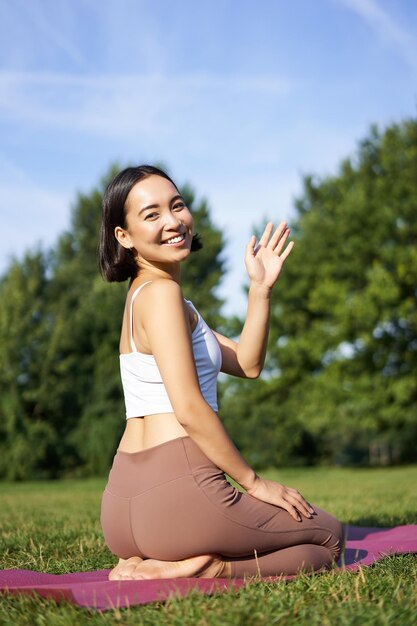
A yoga body isn’t just about being flexible; the ancient practice can also boost your memory, and improve heart and bone health, says Anna Magee.
These days, it seems everyone in the UK is into yoga. Brits are now spending an amazing £790 million a year on yoga classes and mats. While the practice has evolved into unusual forms like rage yoga, dog yoga, and even poses on paddleboards or horseback, the real benefits of yoga are increasingly backed by science.
Researchers from UCLA found that a three-month course of yoga and meditation was more effective than memory exercises in reducing age-related brain impairment. Another study showed that yoga could improve sleep for breast cancer survivors.
When Lucy Edge, a 53-year-old former advertising executive, fell into deep depression, she turned to yoga instead of the antidepressants she was prescribed. After a six-month break in India to learn yoga, she returned happier and more content. Lucy has since written three books on yoga and started Yoga Meds, which lists over 300 clinical trials demonstrating yoga’s benefits for various conditions like arthritis, insomnia, and obesity.
Yoga has multiple health benefits. For instance, a study with adults over 55 showed that those who practiced yoga and meditation had better memory and reduced depression and anxiety. Even though the study was small, it suggests more research should be done on yoga’s benefits for aging brains and hearts.
To get started with yoga, you don’t need to perform complex moves. In the study, participants practiced Kundalini yoga for an hour a week, which includes gentle poses, breathing techniques, and meditation. They also did 20 minutes of Kirtan Kriya meditation daily, which involves chanting and hand movements.
Yoga isn’t just good for the mind; it’s also beneficial for the heart. A review published in the European Journal of Preventative Cardiology suggests yoga can lower heart disease risk as effectively as conventional exercises like brisk walking. Practicing yoga can reduce stress, a significant factor contributing to heart disease.
For those new to yoga or experiencing stress, starting with Restorative yoga might be beneficial. This practice involves holding supported postures for several minutes to relax the nervous system.
Yoga also helps with physical health, such as reducing back pain. Physiotherapist and yoga teacher Sarah Shone developed yoga classes for back pain sufferers, with 87% reporting pain reduction. NICE guidelines also recommend yoga as a treatment for lower back pain.
Yoga can help improve bone density and incontinence by targeting the pelvic floor and other muscles. For beginners, gentle styles like Hatha or Iyengar are advisable. If you have specific conditions, consult your doctor to see if you qualify for subsidized yoga classes.
Investing in good yoga props can enhance your practice. Consider factors like where you’ll keep your mat and how portable it needs to be. A thicker mat can protect your joints and provide more comfort.
One recommended choice is Valka Yoga’s Elephant Cork Yoga mat, priced at £69.95. It’s eco-friendly, made from organic cork and natural rubber, and offers plenty of cushioning for your joints. Cork mats are naturally antimicrobial and resist odors, making them ideal for hot yoga.
Matching Valka yoga blocks can also be beneficial by providing extra length and stability for difficult poses. Though not as lightweight as foam blocks, cork blocks offer better grip and support.
No matter your flexibility or experience level, there’s a yoga style for you. Try Yin or Restorative yoga for a relaxing experience, or Vinyasa Flow for a more energetic session. Iyengar yoga focuses on precise alignment, while Anusara yoga combines alignment with dance-like movements. Yoga Therapy is also available for those needing help with injuries or illnesses.
Trying out different styles can help you find what works best for you and improve your overall well-being.